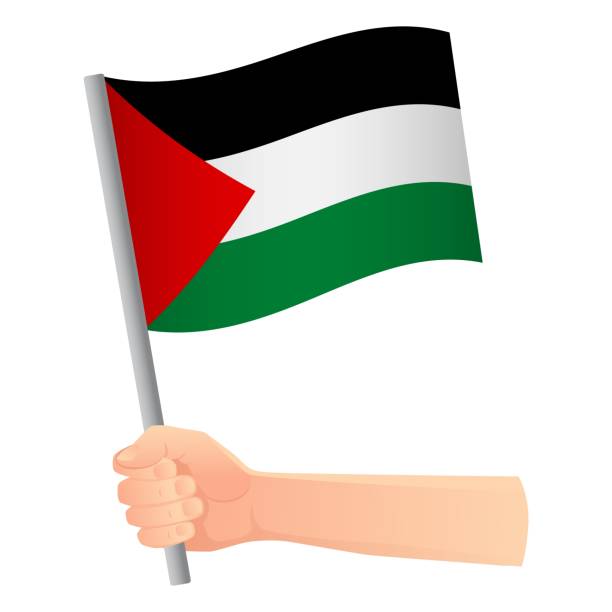Since 1948, Israelis have been pushing Palestinians out of their rightful home. On October 7, 2023, Hamas invaded Israel and took hostages. Only then did Western media, and the world at large choose to cover the events happening there, and they portrayed Palestinians as barbaric terrorists.
Numerous institutions publicized their support for Israel, as Israel has been relentlessly bombing and attacking the Gaza Strip and the West Bank murdering more than 25,000 people. Since then, there has been a large rise in protests, both online and in person. There have been advocates who have called government officials to urge them to vote for a permanent ceasefire or donated money to help provide meals and medical care to people in Gaza. Another option to support, and arguably the easiest, is boycotting.
Palestinian-run organizations such as Boycott, Divestments and Sanctions (BDS) have called for organized boycotts for companies who are providing aid to Israel. To boycott is defined by the Merriam-Webster dictionary as “to engage in a concerted refusal to have dealings with (a person, a store, an organization, etc.) usually to express disapproval or to force acceptance of certain conditions”.
It is extremely important considering the United States government is already donating billions of dollars, of involuntary American tax dollars, to fund the genocide of Palestinian people.
Starbucks took its workers to court for openly supporting Palestine. McDonalds and Burger King are providing meals for Israeli soldiers while millions of innocent Palestinians are starving.
Despite these atrocities, there are still people who prioritize a Big Mac and a large Sprite over human lives. A generic sandwich and drink that you can buy from any other business that is not profiting from the ethnic cleansing of Palestinians.
I have seen people who are mindful of these boycotts and do not care enough to participate. I have seen an overwhelming amount of people who even take PRIDE in the fact that they do not care about boycotting for the people of Gaza.
These people have faced terrible injustices already, yet some people can not put down an overly caffeinated and overly sugary drink that will probably give them health complications anyway. My assumption is their ignorance stems from a lack of faith in boycotting, a lack of belief in change, and sheer greed.
A reason people do not want to support is Western media’s dehumanization of people in developing countries. There is a severe lack of positive representation of other countries in North American media which normalizes poverty, struggle, and war. It creates the illusion that developing countries are in perpetual suffering, and will never improve.
Therefore, many Americans develop an attitude that “this is just how it is”, and “there is nothing we can do about it”, and do not want to support the cause.
Complacency is the problem. You should be outraged. Pessimism is not a justifiable response considering there are countless organizations where you can donate money and make a direct change in a Palestinian’s life.
There is speculation that boycotting does not work when historically, boycotts have been a device for oppressed people and allies to demand change.
The infamous 13-month Montgomery Bus Boycott for non-segregated bus seating almost made the Montgomery bus system file for bankruptcy. Only then is when the Supreme Court ruled segregation on buses to be unconstitutional.
And this boycott is already making an impact. Starbucks’ market value declined by almost $12 billion in just one month.
When protesting large corporations, the only way to truly hurt them is to hurt their pockets. This is what boycotting does.
When a large group of people does not purchase from a company, their inflow of money is reduced. If they suffer enough financially, they may redact their support for Israel. Even if they do not, it prevents other corporations from announcing support for fear of losing money. It sends a clear message: we stand with Palestinians, and we will not support a company that is assisting in their death.
Boycotting is “so hard” for some people because of the greedy, capitalist nature of American culture. American culture is centered around spending money.
A destructive result of this is retail therapy; shopping to ease emotional discomfort or pain. It can become a cycle or a habit, thus leading to overconsumption. When you place material items above human lives, it is desensitizing yourself to genuine suffering and placing your wants and needs above the survival of others. Stop prioritizing instant gratification over flesh and blood.
As the push for boycotting prevailed, the term, “boycott fatigue”, meaning becoming tired from boycotting, rose. How is it hard not to spend money?
I understand it may be hard to part from companies/items that we have formed an emotional attachment to or have carved into our routine, but going as far as creating a term and suggesting that you are the victim of this situation is disgustingly narcissistic.
A Palestinian Los Osos student, Sophmore Somia Aqra, said, “If you truly understand and feel for what Palestinians are currently experiencing you should not want to go back to a place that is funding killings, loss, and pain. I want people to understand the people of Palestine are not merely numbers or statistics–they’re human beings who deserve to be treated as such. Lastly, (Glory be to our martyrs) تحية لشهداء غزة اهل العزة .”
If you claim you support Palestine, do your part: boycott, protest, donate, spread awareness. The power of unity is too undermined. Any contribution, small or large, is an integral part of ensuring that Palestine will be free from the river to the sea.

